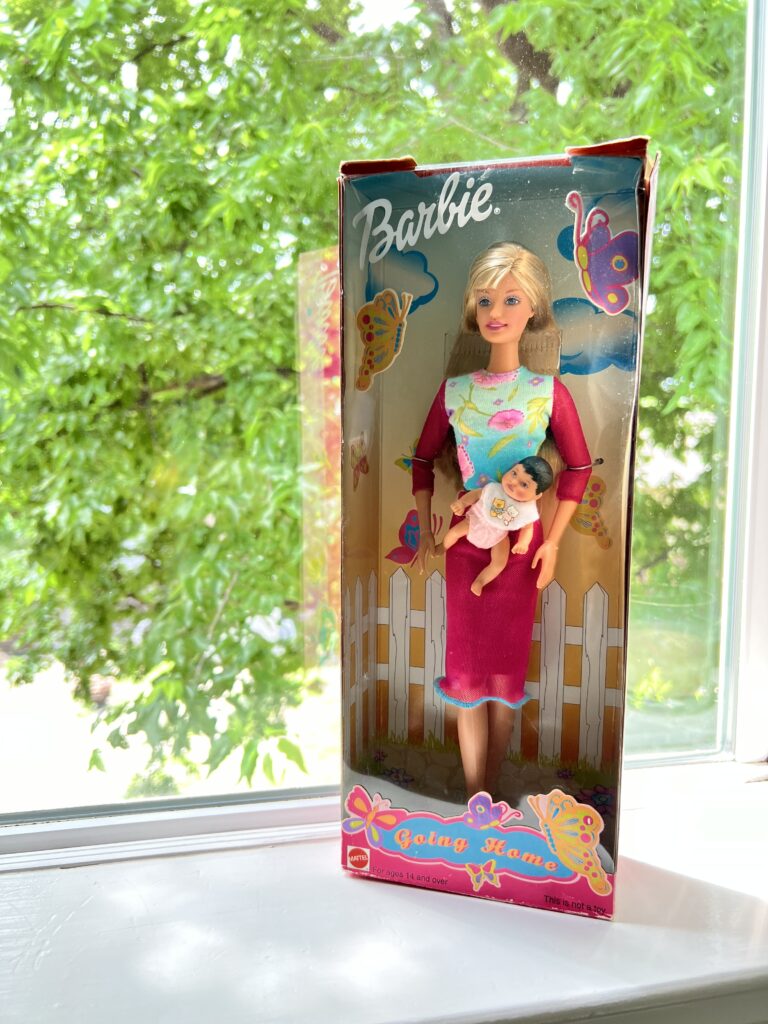
by Peyton White
On Monday, March 4, 2024, The Religious Studies Department hosted the Spring Departmental Colloquium, inviting Lucianne Nelson Leonard to present her work on adoption in the context of U.S. nation building. Lucianne is a Ph.D. candidate in the department who focuses her writing, research, and teaching on religion, transnationalism, identity, and popular culture, particularly asking how capitalist humanitarianism works to establish belonging and citizenship in the US.
The spring colloquium is an opportunity for the department to highlight graduate student work and gives PhD candidates an opportunity to present their progress toward major publications and dissertations to their peers and faculty. They’re also important to the Religious Studies departmental community in that visiting prospective graduate students are invited to take part. By holding the colloquium during their visit, prospective students are encouraged to engage with the intellectual life of the department and gain insight into the type of work current students are undertaking.
Lucianne offered opening remarks on her chapter in the forthcoming publication of the Routledge Handbook on Religion and American Culture, contextualizing that it represents a condensed version of her overall dissertation project. In her own words, “this forthcoming chapter addresses American culture as a site where religion is made in the United States through the ritual production of sacred persons, places, or things set apart as beyond the everyday.”
The chapter discussion began with Nelson describing an online discourse which erupted in 2023 over a limited-edition “Going Home Barbie” doll that was gifted to American families adopting children in China during the early 2000s. Nelson’s chapter argues this doll’s significance for establishing particular notions of benevolence and kinship as “Going Home Barbie” represents family-making as a U.S. project, which softens the violence and dispossession of U.S. imperialism and nation building. The article tracks the history of the U.S. government’s involvement with the removal of children from indigenous communities and the relationship between this process of child removal and the establishment of ideal notions of U.S. families. Nelson links the military and territorial expansion of the U.S. under manifest destiny to the idea of manifest domesticity, which focuses on family, especially motherhood, as a more benevolent endeavor. Nelson uses manifest destiny and manifest domesticity together in order to contextualize the history of adoption in the U.S. as a means of managing kinship and enforcing identities and family norms, which support the US imperial project through notions of humanitarianism and moral goodness.
As Nelson concluded her presentation, she passed around a mint condition “Going Home Barbie” for participants to examine. Passing the doll, she reflected on the idea of Barbie itself as a tool for both expansive imagination and the management of U.S. imperial norms, which ironically constrain children’s imagination of family outside white, heteronormative, consumer-driven frames. “Going Home Barbie,” a white Mom Barbie holding a Chinese baby, therefore distills a moment of benevolent U.S. manifest domesticity, signifying the adoptive act as central to the nation-building of the U.S. As she closed, Nelson reminded participants that “Going Home Barbie” exists in a perpetual state of going home, in an open state of possibility. The benevolent process of adoption is not neatly resolved within the American Barbie-land fantasy, as this doll has no accessories, no world to build out beyond the adoption moment.
Nelson’s provocative chapter and powerful reflections bolstered a stimulating Q&A, which concluded the colloquium.
About the Speaker:
L. Nelson Leonard is a fifth-year PhD candidate in Religion in Society. They study and teach about religion, transnationalism, identity, and popular culture in the United States, specifically paying attention to how capitalist humanitarianism defines boundaries of citizenship and belonging.
About the Author:
Peyton White is a first-year PhD student in Religion of the Americas. His work specializes in the anthropology of Jamaican Rastafari and the colonial management of religion in the Caribbean.
